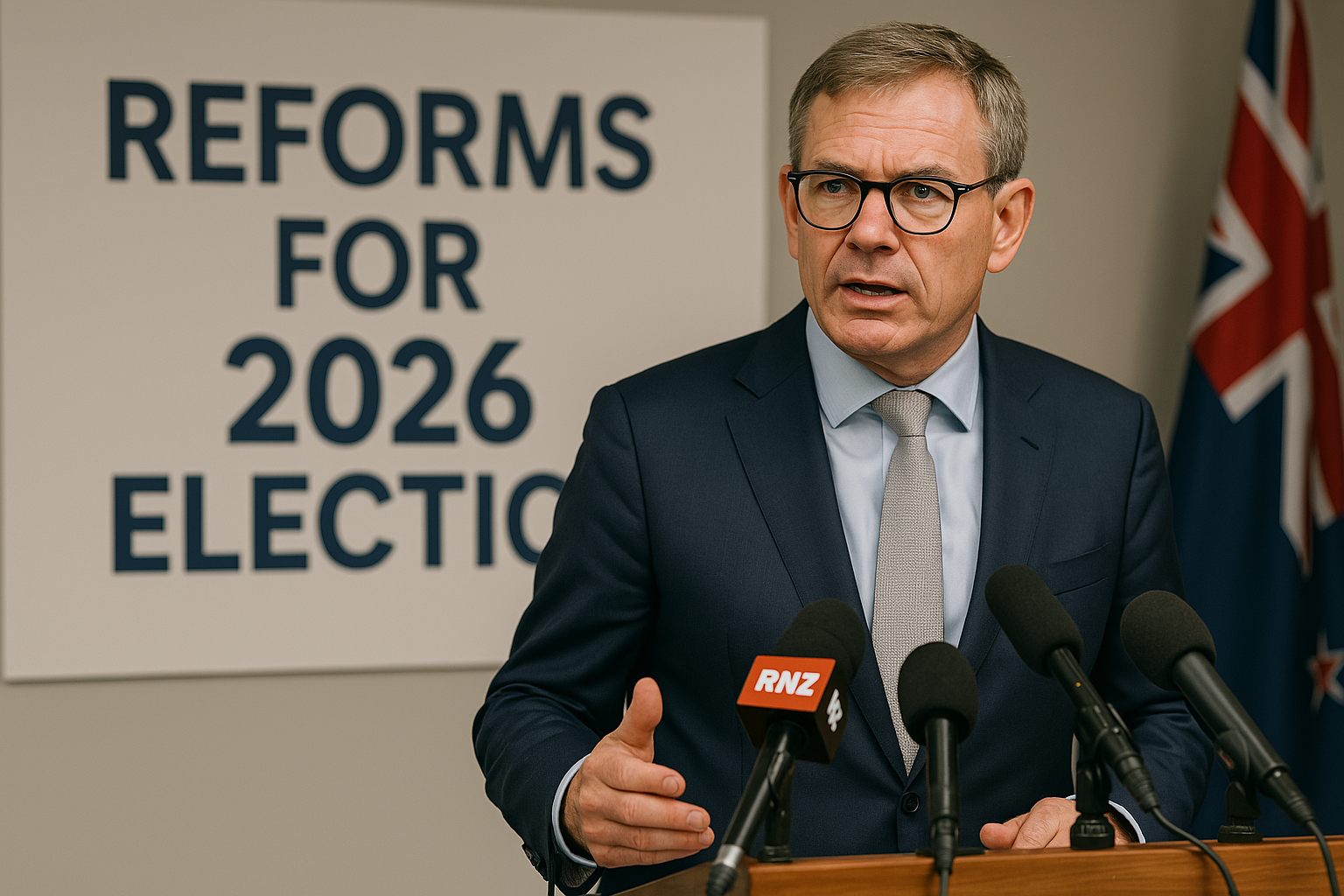Govt to Implement Key Changes for More Efficient, Transparent 2026 Election
Justice Minister Paul Goldsmith announced that the government is set to move forward with 65 recommendations aimed at improving the electoral system.

- Country:
- New Zealand
Voters in the upcoming 2026 Election can expect a more streamlined, transparent, and resilient voting process, thanks to the government's acceptance of a series of recommendations from the Justice Committee following a thorough inquiry into the 2023 election. Justice Minister Paul Goldsmith announced that the government is set to move forward with 65 recommendations aimed at improving the electoral system. These recommendations were the result of extensive consultations and analysis by the Committee.
The Justice Committee’s inquiry was part of its routine examination of the election process, which looked into various areas for improvement. The final report provided detailed suggestions to address both practical concerns and long-term goals for election integrity. The government has committed to implementing 23 of these recommendations either in full or in part through an electoral amendment bill that will be introduced later this year.
Among the key changes proposed are simplifying processes related to candidate and party list nominations. One major recommendation includes establishing a single deadline for all nominations, which would reduce confusion and improve efficiency. Additionally, the Committee suggested amending the current cut-off date for voter enrolment before polling day, a change aimed at making it easier for individuals to participate in the electoral process.
While the government has agreed to adopt most of the proposed changes, there are some areas where an alternative approach will be pursued. In these cases, the government's solutions will still address the core issues raised by the Justice Committee, even if they differ from the exact recommendations provided. This flexibility ensures that the changes are practical, adaptable, and suitable for New Zealand’s specific electoral context.
In total, 36 recommendations are considered high-priority and will be reviewed as resources allow, with an eye toward future legislative amendments. However, six recommendations do not necessitate changes to the law. Instead, the government has asked the Electoral Commission to explore how these suggestions can be best implemented using existing frameworks.
Minister Goldsmith expressed his appreciation for the work done by the Justice Committee and the contributions of nearly 100 individuals and organizations that provided submissions during the inquiry. He emphasized that the government's response to these recommendations underscores its commitment to upholding the democratic process while ensuring that future elections are more efficient and accessible to all New Zealanders.
The Justice Committee’s inquiry and the government’s response reflect a broader commitment to improving the electoral system in line with evolving needs and challenges. With the 2026 Election just around the corner, these changes aim to build greater trust in the electoral process and ensure that all voters can participate in a fair, transparent, and resilient election.
The electoral amendment bill, once introduced, will provide further details on the specific changes, and the government is keen to keep the public informed throughout the legislative process.
- READ MORE ON:
- Paul Goldsmith
- Election
- Justice Committee










